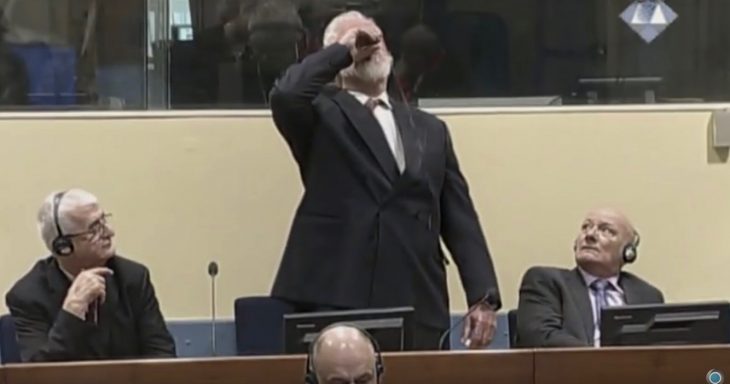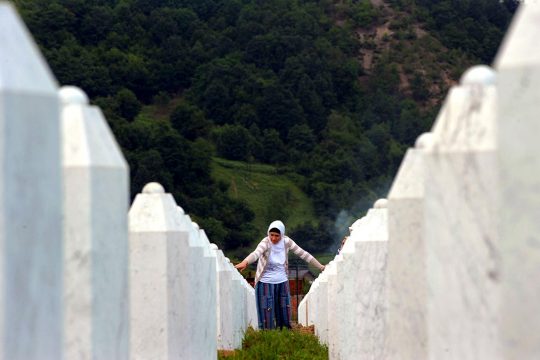Croat war criminal Slobodan Praljak’s suicide in court, just as he was being sentenced to 20 years in jail, puts a tragic final end to the International Criminal Tribunal for the former Yugoslavia (ICTY). It is with those images, broadcast on the Internet, that the ICTY will close its doors at the end of December. This is the “lowering of the curtain on a courtroom become a crime scene”, writes AFP.
The ICTY, set up by the United Nations in 1993, was the first international criminal tribunal after the post-World War II Nuremberg trials of Nazi war criminals. Born during the Balkan conflicts, the ICTY leaves a significant but also controversial legacy for international justice.
“Never has a war been so documented, examined and analysed by judicial authorities since the Second World War,” says JusticeInfo editorial advisor Pierre Hazan in an article entitled Justice leaves a bitter taste in the Balkans. “Now it is time to analyse the record of this first international criminal tribunal, its successes and failures. This is indispensable, if only to learn lessons for the future of international justice.”
And beyond the dramatic end of Slobodan Praljak, “what is most striking is the huge gap between judicial truth and the way it resonates in the societies most concerned”, writes Hazan. “With courage, but also with sadness, the ICTY Prosecutor recognizes that those being glorified today are the war criminals and not their victims. This failure calls for deeper reflection on the challenge represented by an international court’s capacity to get its message across in divided societies.”
But Cardinal Dieudonné Nzapalainga, one of the most respected people in a Central African Republic torn by four years of civil war, nevertheless asserts unequivocally that there can be no peace without justice. “Saying no to impunity is saying no to the infernal cycle of violence and the fact that torturers will become victims and victims will become torturers,” he said in an interview published by JusticeInfo. “Those who have acted, divided, killed, must be held accountable, because it is too easy to say now we wipe the slate clean and finish with our broken past.”
This kind of broken past is expressed with poignancy by children, as shown in a book and travelling exhibition on the drawings of children in war, particularly in Darfur (Sudan). These precise, poignant drawings gathered by Human Rights Watch have been filed as evidence before the International Criminal Court. Françoise Héritier, who wrote the book’s preface, speaks of the “deafening silence” expressed by these drawings. Héritier, a French anthropologist who died on November 15 in Paris, speaks in one of her last texts of the “obscene reality which must have been made of noise and fury”. None of these testimonies are imagined, she says, adding that they are a representation of “universal violence”.







